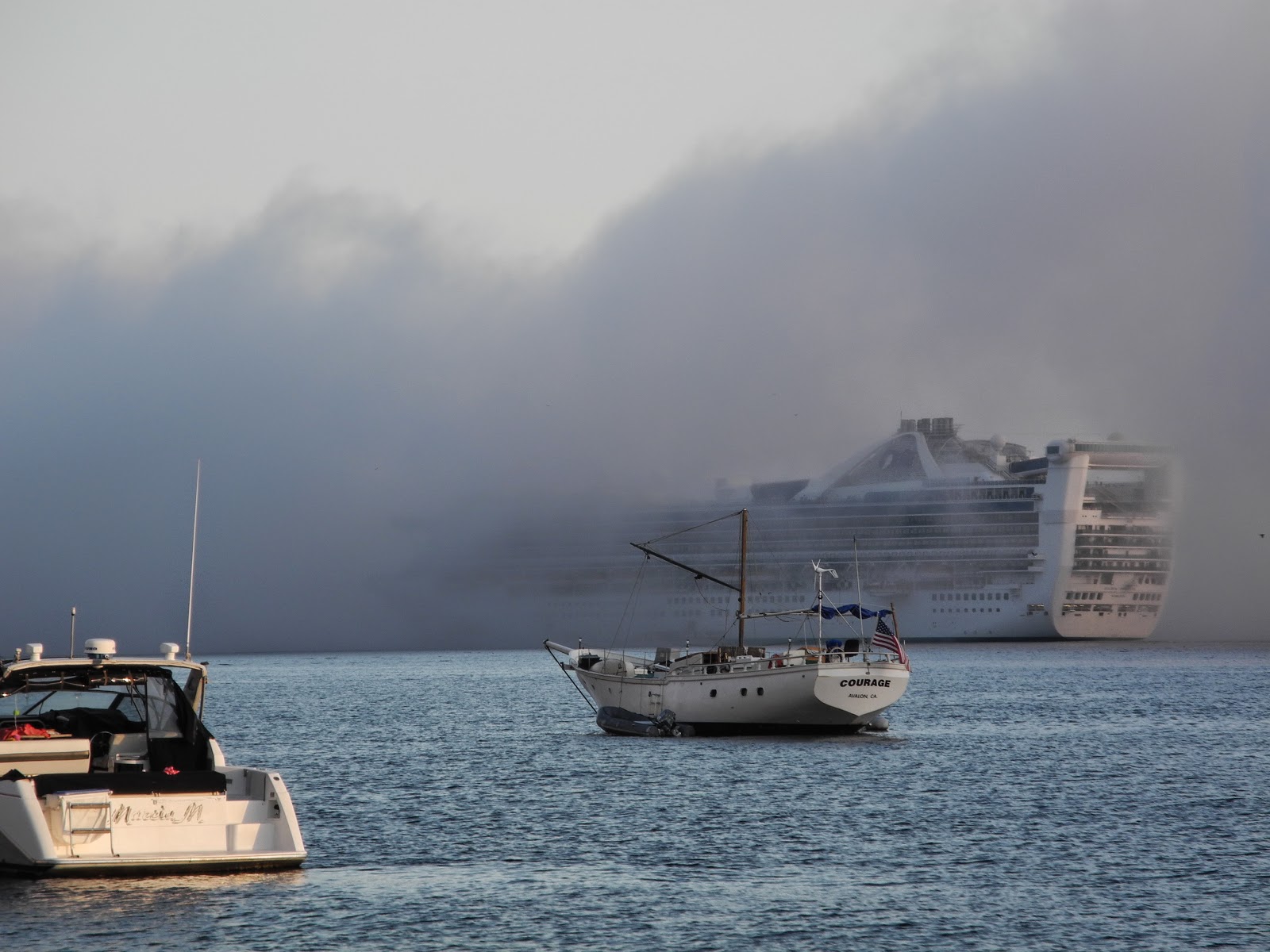 |
| Navy facilities on San Clemente Island |
Like a middle aged man recovering from a stroke, restoring an island that was eaten up by goats or iceplant is physically demanding. But more-- it brings up deep existentialist questions, which aren't often addressed.
Our tendency is to go into battle and fixate our resources with singleminded focus -- but if we stopped to ask our bodies or lands what they actually need, would we get different answers? There are two voices competing for attention:
The Environmentalist Voice
The stroke victim wants to be able to run and swim like he did in the past, at all costs. He wants to preserve his limbs and youthfulness. This is like the voice of the environmentalist, who harkens to the past; determined to restore native habitat and protect species from withering away. He considers wellbeing of nature is intrinsically important, and tied in with the future wellbeing of humans.
The Conservative Voice
The stroke victim begins to think he should "just move on" to new hobbies and pursuits, and not worry about re-living his past. He wonders if months of physical therapy and special diets are a waste of time - he could just enjoy the life he has. This is similar to the voice of the conservative, who prioritizes progress and moving forward. He thinks spending millions of dollars on restoration is a waste, since it could be allocated to more immediate human uses, not vague ecosystem benefits.
A Holistic Approach?
The voices seem to contradict one another, but it is in their union that lies strength.
The environmentalist voice is past driven. It is important because even if we are single-mindedly trying to protect a small salamander which thrived 50 years ago, the benefits expand in multiple ways: better stream water quality, better hiking opportunities, better erosion control, better habitat for other species, etc. The stroke victim, similarly, may not be able to run again like when he was young, but exercising and a good diet will improve his overall health and quality of life.
The conservative voice is future driven. It is important because accepting new conditions and focusing on immediate human needs prevents stagnation; it keeps the creative force of society moving and improving. Sometimes dumping millions into a stream restoration with bulldozers and delicate natives leads nowhere. Likewise, the stroke victim doesn't want to be forever frustrated that they can't be young again-- moving on with life and cultivating a good attitude is central component to wellbeing.
The strange thing is that both voices are concerned with our wellbeing -- but employ different perspectives. Every stroke victim needs to listen to his/her own body and limitations at each step of the way, with one foot in the conservative future, and one foot in the environmentalist past. The recovery of Islands is the same. At the heart of the problem is that we don't tend to listen to what our bodies and lands needs; if we did, we'd hear both voices echoing.
If I could talk to the island, what would it really want? How does one listen to islands, or our own bodies, for that matter? How do we figure out the holistic approach to recovery? These are the mysteries that I set out seeking.
 |
| Different crafts co-existing, as the fog rolls into Avalon anchorage, Catalina Island |


No comments:
Post a Comment